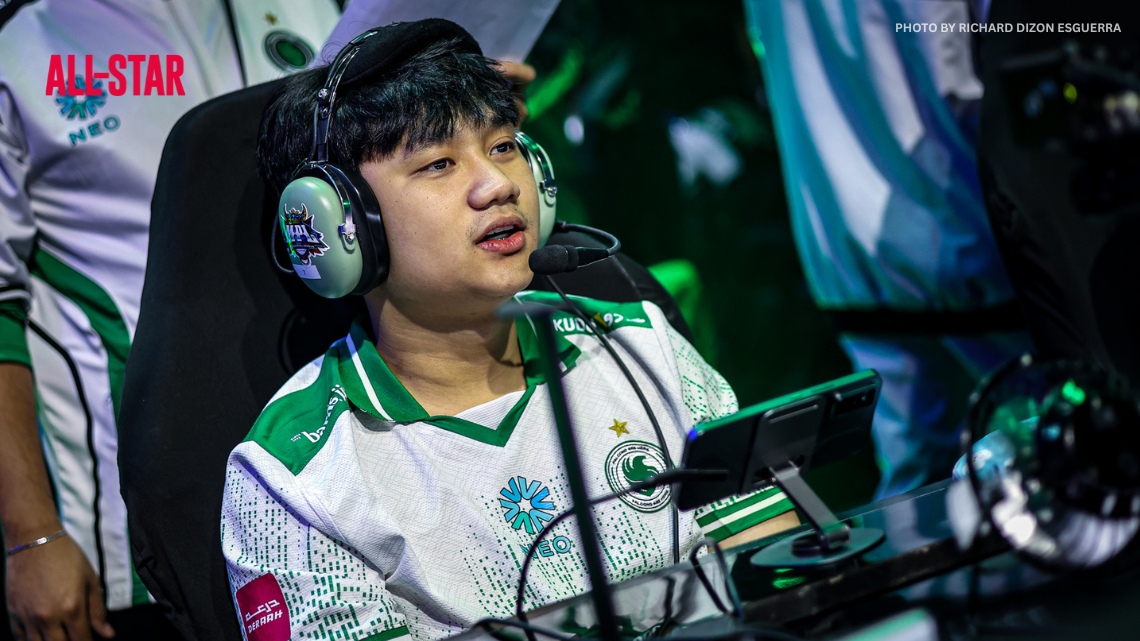Owgwen and the Season Team Falcons Forgot Who They Were
We branded them “The Comeback Kids” after winning Season 12 and sweeping international tournaments thereafter. And for a brief moment, we saw glimmer of that spunk after they muscled through this year’s regular season from a 2-9 slump.
But before the playoffs began, Owgwen already knew.
“Sobrang swerte lang namin na nakapasok kami ng playoffs,” he told ALL-STAR.
There was a tone of gratitude and resignation.
They made it only because fate bent their way. Certain teams had to lose, certain conditions had to align. “Hindi nakasalalay sa amin yung fate namin para makapasok ng playoffs,” Owgwen said. “Kaya noong time na na-meet yung conditions, sinuwerte lang talaga kami.”
Luck, that unreliable god of esports, had given them one last breath.
Beneath that breath, truth lingered.
Falcons’ momentum came too late. It began only after Twisted Minds fell to them. “Slow pacing kasi kami,” he admitted. “Sobrang bagal ng growth namin noon. Kahit panay 1-2 kami, naging 2-1, hanggang sa manalo nang manalo kami sa mga last matches namin.”
That slow burn of improvement, almost poetic in hindsight, couldn’t undo what had already calcified within: the erosion of identity.
There was a time when these boys, when playing as a team, meant something specific: a style, a swagger, a system. This season, it meant confusion. “Wala kami talagang identity as a team,” Owgwen said.
Glimpses of it resurfaced in the final week. Kyletzy’s Yi Sun Shin, the Kaja picks, the late-blooming Uranus that finally drew bans. But the recognition came too late, like remembering who you were only after you’ve already lost.
“Pero matagal na kayong makakasama, solid yung pagiging magkakapatid ninyo di ba?” we pointed out.
Owgwen countered.
“Siguro may factor din iyon, yung matagal nang magkakasama kami,” he reflected. “Kasi yung mga habits namin mahirap maayos, nasasabi namin na ‘Ganyan talaga yung tao na iyan.’ Marami talagang mga bagay na na-bypass na nagagawa naming mali sa scrims na nadadala namin sa tournament.”
The honesty in that sentence revealed what statistics never could: longevity without adaptation breeds stagnation.
Some said the loss of routine—or of Duckeyyy—had unmoored them.
But Owgwen wouldn’t pin it on one absence. “Kulang lang talaga kami sa preparation, tsaka sa analyst,” he said plainly.
The real wound went deeper.
It began weeks before, during the IESF tournament, where Falcons absorbed a loss that didn’t just cut their record but their belief. “Talagang sobra ang laki ng pagka-down ng moral namin,” he recalled. “Parang tama pa ba iyong mga ginagawa namin? Wala na talaga kaming confidence sa laro namin noong time na iyon.”
The self-doubt festered. “Talagang nag-snowball after noong matalo kami sa IESF,” he said. “Nakita namin na sobrang pumangit yung laro namin, nag-overthink kami sa mga ginagawa naming mali.”
When asked what he learned from it all, Owgwen’s answer carried the kind of quiet wisdom that only comes after defeat.
“Sa simula pa lang dapat ibigay na ninyo yung best ninyo,” he said. “Kasi kapag hindi mo binigay yung best sa unang week pa lang, sa second week kaya nang ibigay ng mga teams yung best nila. Kaya sa una pa lang, ibigay mo na hanggang sa dulo.”
In the end, the words that linger weren’t about failure, but reflection:
“Kapag may nag-lend ng hand, dapat naging open-minded kami.”
A recognition that their greatest strength, being brothers who trusted each other too much, was also their undoing.
Because in esports, as in life, familiarity breeds comfort. And comfort, Owgwen learned, can dull even the sharpest wings.
For more exclusive esports stories, click here.

